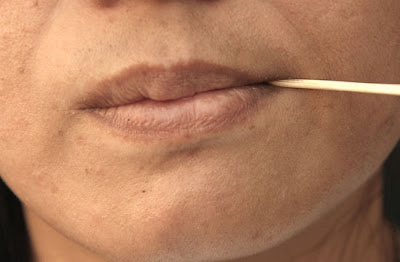 |
| Bad Habits: Effective Tips On How to Break Up With Your Bad Habits (Business 2 Community) |
Change is hard some say. Some people are so used to old lifestyle or bad habits whether its unhealthy or detrimental to your finance, marriage, career etc that making a healthy-habit change becomes a very difficult mission.
Also Read: Healthy Habits: How To Make Lasting Healthy Habit Change
Chains of habit are too light to be felt until they are too heavy to be broken.
Warren Buffett
Do you feel that some of your habits are holding you back from experiencing the successful life you desire? Your habit may be as small as biting your nails or buying expensive lattes every single day. At the other end of the spectrum, you may want to break free of smoking, extreme anger, excessive eating, or some other detrimental habits. Here are a few tips that can help you put an end to those pesky practice once and for all.
1. Find Your “WHY.”
Now It’s Your Turn. Please Don't FORGET To SHARE This POST, Your Friends Might Need It! Feel Free To Leave Your COMMENTS. Your FEEDBACK And COMMENTS Are Always Appreciated. :-)
Warren Buffett
Do you feel that some of your habits are holding you back from experiencing the successful life you desire? Your habit may be as small as biting your nails or buying expensive lattes every single day. At the other end of the spectrum, you may want to break free of smoking, extreme anger, excessive eating, or some other detrimental habits. Here are a few tips that can help you put an end to those pesky practice once and for all.
1. Find Your “WHY.”
Determine why you should stop. Think about how your may be hurting you and/ or others. Is it detrimental to your health? Screwing up your appearance? Putting a dent in your wallet? Does it make you act irrationally? Does it hurt your loved ones? Sit down and make a list of the benefits that you will experiencewhen you do put an end to this habit once and for all.
If you can find no compelling reason to stop, then the chances are high that you will be less willing to work toward quitting. Find a reason to stop the progression of your habit and hammer that thought into your mind each time you feel compelled to continue with it.
2. Get a Carrot
If you can find no compelling reason to stop, then the chances are high that you will be less willing to work toward quitting. Find a reason to stop the progression of your habit and hammer that thought into your mind each time you feel compelled to continue with it.
2. Get a Carrot
Of course, when there is a direct reward at the end of your journey, you will be much more inclined to give a wholehearted effort. Indulge in a trip to the spa, get a new outfit for work or make a trip to your favorite restaurant each time you reach a large milestone.
Ensure that your reward is not connected to the habit your are trying to stop. If, for instance, you are trying to quit smoking, it would make no sense, and be detrimental to reward yourself with a cigarette at the end of each week for “being good.”
Save the largest rewards for last. What do you want the most? What is something you have wished you could purchase or experience for a long time? Spend the time you would normally spend indulging in your habit to plan your pot of gold at the end of this rainbow.
And, the reward should be in line with the complexity of your task. Rewarding yourself with a cruise to the Bahamas because you stopped biting your nails would be a bit of a stretch. But, rewarding yourself with a massage at the spa might be more rational.
3. Read About Success
Ensure that your reward is not connected to the habit your are trying to stop. If, for instance, you are trying to quit smoking, it would make no sense, and be detrimental to reward yourself with a cigarette at the end of each week for “being good.”
Save the largest rewards for last. What do you want the most? What is something you have wished you could purchase or experience for a long time? Spend the time you would normally spend indulging in your habit to plan your pot of gold at the end of this rainbow.
And, the reward should be in line with the complexity of your task. Rewarding yourself with a cruise to the Bahamas because you stopped biting your nails would be a bit of a stretch. But, rewarding yourself with a massage at the spa might be more rational.
3. Read About Success
Get a book or browse the web to read success stories of those that have previously been where you now find yourself, and were able to conquer the same habit. Being able to see social proof that others have been able to achieve the task you are now facing makes the pursuit seem tremendously more manageable.
4. Baby Steps
4. Baby Steps
Focus on only one small step each week to ensure long lasting results. For example, if you are working at losing weight, you might want to eliminate sweets from your diet for the first week. The next week eliminate some of the other carbohydrates, like white bread, in addition to the sweets.
That old childhood adage, “slow and steady win the race” is true. Crash diets will not work, and quitting anything cold turkey will often lead to some other compensatory behavior. This is one reason that most people who are quitting smoking gain weight. They have the need to fix an oral fixation. And if the compensatory habit is just as much of an issue as the one that you are trying to break, then this will grind your progress to a halt and you will have to start all over again at step one.
Have measurable goals. What does that mean? If you are trying to minimize your spending, determine the average amount you spend each week in unnecessary purchases, like your daily latte fix, for example. Then set a goal to reduce that amount by 10% for the first week.
Habits provide you with a level of comfort that everything in your world is okay. They serve to give you a feeling of control over your circumstances. However, a dependency on a routine that has negative consequences or is detrimental to your physical and mental health can be replaced by choices that will fuel your success instead.
Remember that you are the boss of your mind, body, and soul. Embark on the road to breaking up with your bad habit today and prove to yourself just how much stronger you are than it is!
Thoughts?
That old childhood adage, “slow and steady win the race” is true. Crash diets will not work, and quitting anything cold turkey will often lead to some other compensatory behavior. This is one reason that most people who are quitting smoking gain weight. They have the need to fix an oral fixation. And if the compensatory habit is just as much of an issue as the one that you are trying to break, then this will grind your progress to a halt and you will have to start all over again at step one.
Have measurable goals. What does that mean? If you are trying to minimize your spending, determine the average amount you spend each week in unnecessary purchases, like your daily latte fix, for example. Then set a goal to reduce that amount by 10% for the first week.
Habits provide you with a level of comfort that everything in your world is okay. They serve to give you a feeling of control over your circumstances. However, a dependency on a routine that has negative consequences or is detrimental to your physical and mental health can be replaced by choices that will fuel your success instead.
Remember that you are the boss of your mind, body, and soul. Embark on the road to breaking up with your bad habit today and prove to yourself just how much stronger you are than it is!
Thoughts?
Post Credits
Post Site: http://www.business2community.com/
Post Arthur: Martina McGowan
Follow on Twitter: https://twitter.com/MartinaMcGowan
Like on Facebook: https://www.facebook.com/MartinaMcGowanMD
Now It’s Your Turn. Please Don't FORGET To SHARE This POST, Your Friends Might Need It! Feel Free To Leave Your COMMENTS. Your FEEDBACK And COMMENTS Are Always Appreciated. :-)










